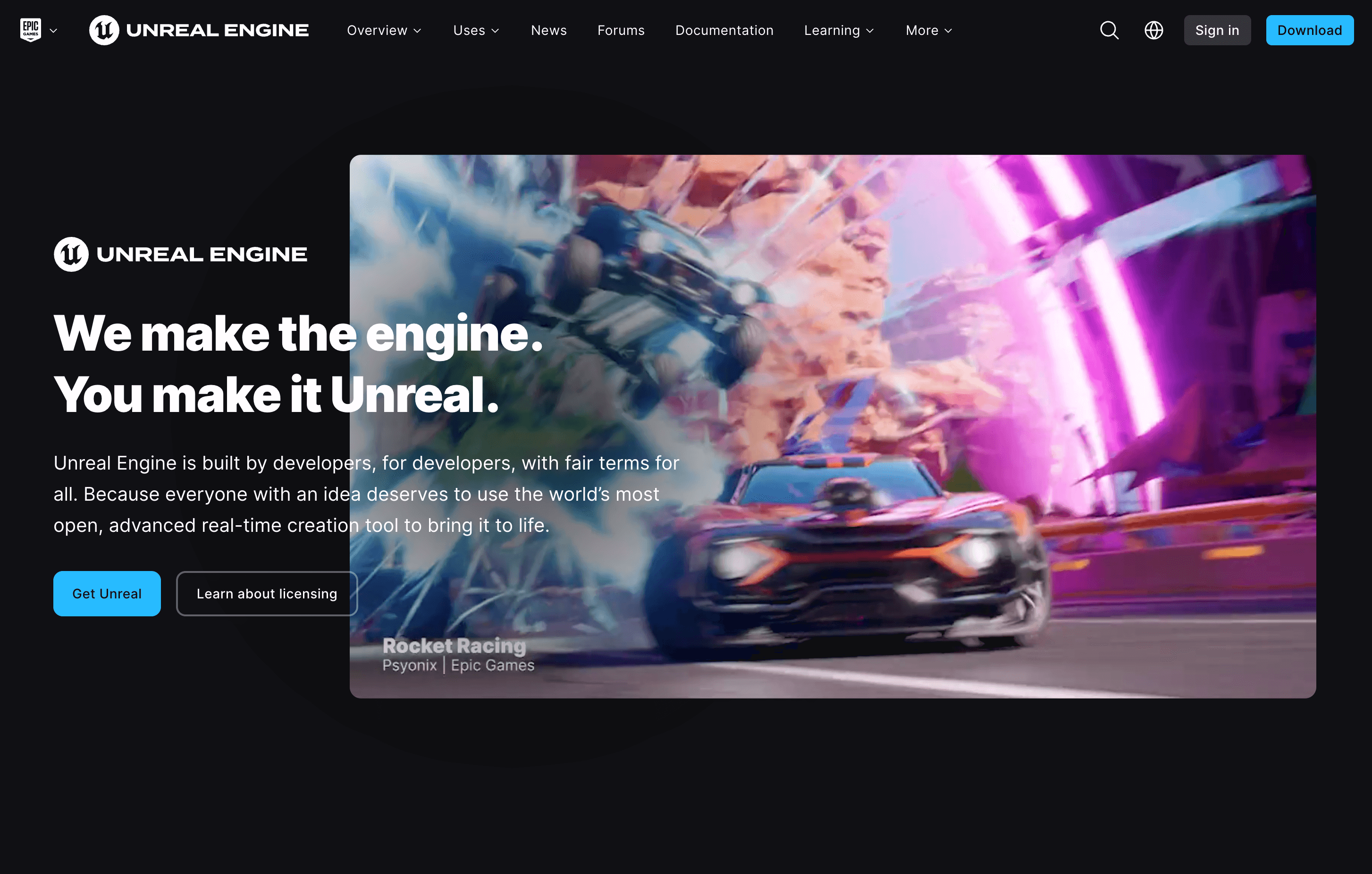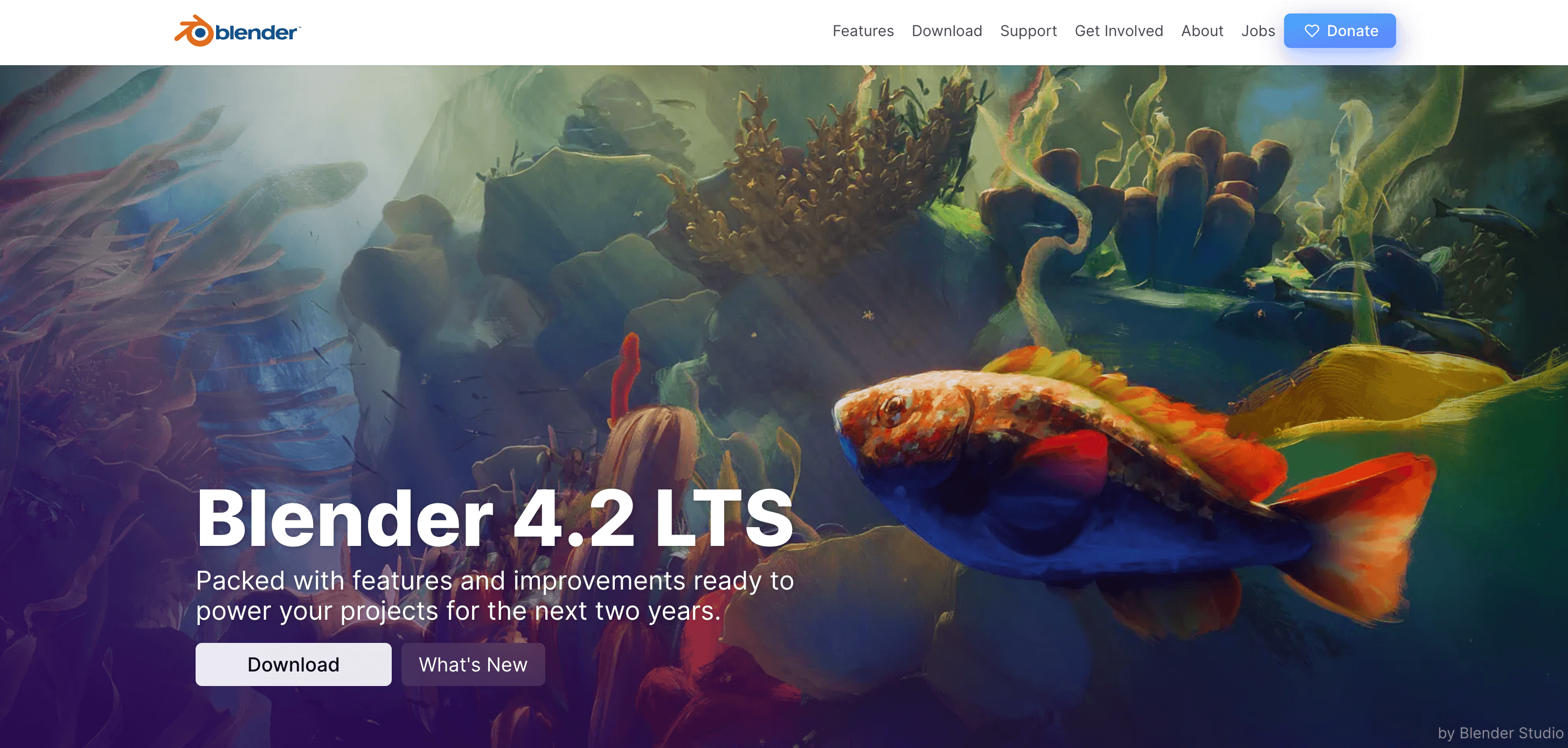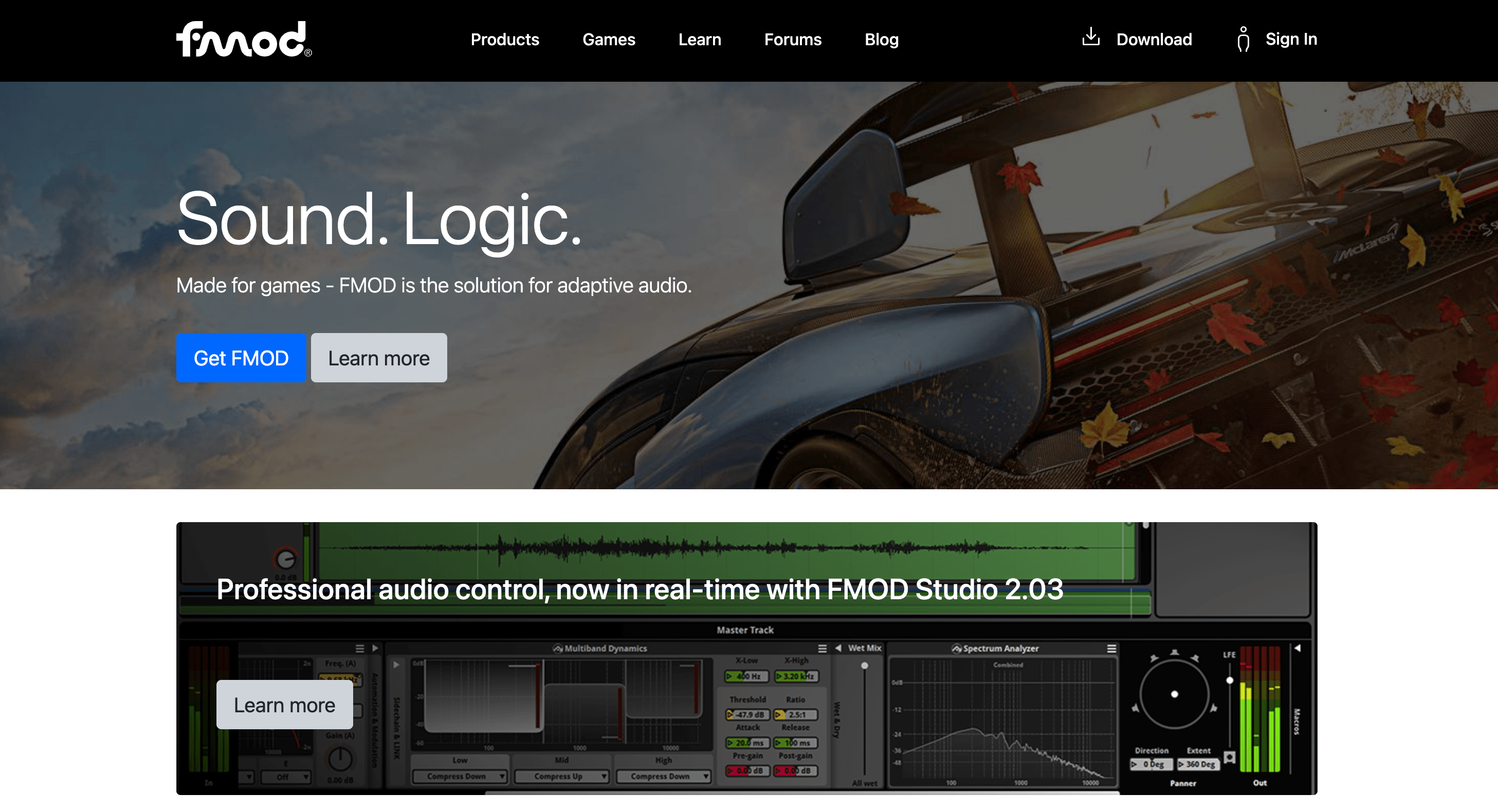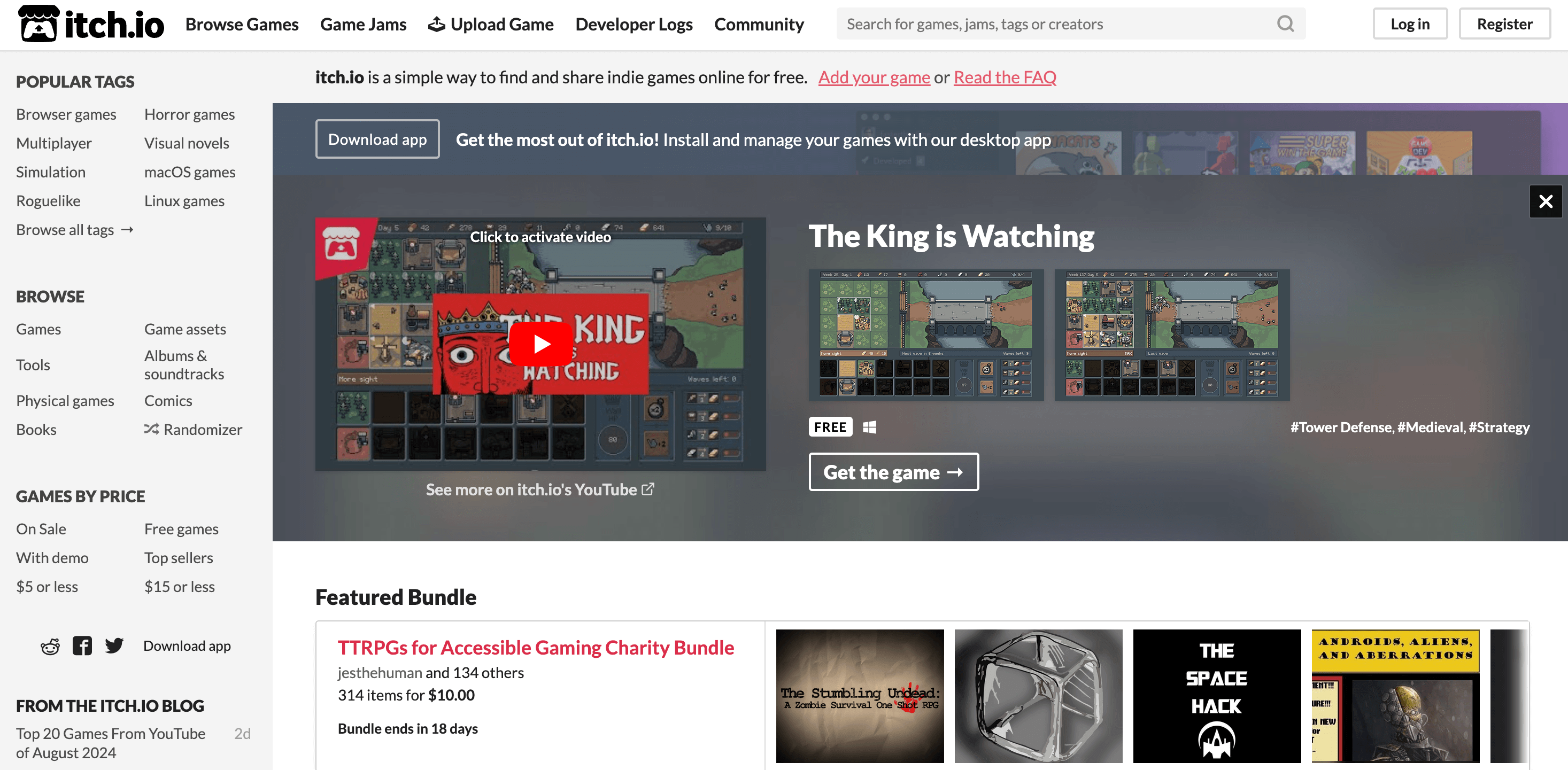It’s 2024, and the ever-growing realm of indie game development is more accessible than ever! Thanks to the advent and availability of powerful tools, resources, and robust communities supporting indie game developers. Whether you’re taking it all on as a solo developer or part of a small team, leveraging the right tools is essential to creating high-quality games that stand out in the crowded gaming market.
With indie games now competing with AA titles in terms of innovation and creativity, staying on top of these essential resources is crucial. In this guide, we’ll break down the best tools and resources that every indie game developer should have in their arsenal to help streamline their workflow and bring their game to life.
Game Engines: The Heart of Indie Game Development
Unity

Unity is a household name and has become synonymous with indie game development. Lauded for its versatility, Unity supports 2D and 3D game development and offers a diverse range of assets in the Unity Asset Store. Its user-friendly interface and strong community make it the go-to for beginners and seasoned developers alike.
Add to that Unity’s integration with multiple platforms, which allows for seamless cross-platform development.
Why choose Unity?
- Free tier for indie developers
- Access to a large community and wealth of tutorials
- Cross-platform development for PC, console, and mobile games
Unreal Engine

Then, there is another well-known name in game development; Unreal Engine. Known for it’s AAA-grade graphics, this engine is another powerful option for indie game developers. It offers a comprehensive suite of tools that allow developers to create and render stunning environments and complex game mechanics. There’s also Unreal’s Bluepring visual scripting engine, which is ideal for developers seeking to avoid the task of heaving coding while still creating intricate game systems.
Why choose Unreal Engine?
- Free to use until your game earns more than $1 million
- Built-in support for VR/AR development
- Blueprint visual scripting for non-coders
Art and Animation Tools
Creating visually appealing games is crucial for making a lasting impression, especially in a market flooded with indie titles. Here are some essential tools for crafting top-tier graphics and animations.
Aseprite

Aseprite is beloved by indie developers for its affordability and user-friendly interface. This powerful tool specializes in creating and animating pixel art, with a timeline feature that enables frame-by-frame sprite animation and support for exporting animations as GIFs.
Why choose Aseprite?
- Intuitive interface designed for pixel art
- Affordable one-time purchase
- Frame-by-frame animation support
Blender

Blender is a powerful, open-source 3D modeling tool that many indie game developers swear by. Whether you’re creating 3D characters, assets, or environments, Blender’s robust features and extensive tutorial community make it an indispensable resource.
Why choose Blender?
- Free and open-source
- Advanced features for 3D modeling, sculpting, and animation
- Strong community support and countless tutorials
Audio and Sound Design Tools
Stellar sound design can truly elevate a game from good to unforgettable. Thankfully, today, there are numerous resources to help indie game developers craft genuinely immersive auditory experiences.
FMOD

FMOD is a powerful tool for sound design and music integration in games. It provides a dynamic way to implement sound that can react to in-game actions, elevating the overall experience. FMOD is accessible for projects generating revenue under $200,000, making it an exceptional choice for indie developers.
Why choose FMOD?
- Real-time interactive audio
- Easy integration with Unity and Unreal Engine
- Free tier for small projects
Audacity

When it comes to audio editing and recording, Audacity is an essential tool. This open-source software empowers developers to perfect sound effects, voiceovers, and music tracks for their games.
Why choose Audacity?
- Free and open-source
- Simple and user-friendly interface
- Wide range of editing features for audio processing
Collaborative Tools: Streamlining Workflow
Staying organised is crucial for the success of any game development project, whether you're working alone or with a small team. To facilitate collaboration and project management, here are some essential tools to consider.
Trello

Trello's card-based system provides an effective way to monitor the advancement of your game development. It enables you to efficiently manage tasks, set deadlines, and gain a clear visual representation of the entire development journey through an intuitive interface. This is particularly beneficial for indie teams seeking a straightforward project management solution.management solution.
Why choose Trello?
- Free with upgrade options
- Simple drag-and-drop interface
- Effective for solo or team-based project tracking
GitHub

In game development, GitHub plays a crucial role in version control. It empowers developers to effectively track changes in their code, work collaboratively with team members, and guarantee the safety and recoverability of all game versions in the event of any issues.
Why choose GitHub?
- Free for public and private repositories
- Helps manage code changes efficiently
- Collaboration features for remote teams
Marketing and Distribution: Getting Your Game Seen
For indie developers, having a solid marketing and distribution strategy is essential to ensure that even the best games get the attention they deserve. Here are some valuable resources to assist indie developers in promoting and distributing their games effectively.
Steam

Steam is a leading platform for indie games, providing developers with an opportunity to reach a vast global audience. Despite the fee for listing games on Steam, its robust discoverability tools, active community, and seamless integration with other resources make it a compelling option for developers.
Why choose Steam?
- Large and active gaming community
- Built-in marketing tools like Steam Curators
- Global reach
itch.io

When you're beginning your game development journey or looking to launch experimental titles, itch.io provides the ideal platform. It offers flexibility, allowing developers to distribute their games according to their own preferences. It is particularly popular among indie developers because of its accessibility and community-oriented approach.
Why choose itch.io?
- Free to list games, with customizable revenue share
- Great for indie developers seeking creative freedom
- Strong community of gamers and developers
Indie Game Launch
As an indie developer, visibility is everything. With so many incredible games being released daily, it's crucial to find ways to stand out from the crowd. This is where Indie Game Launch comes into play. Indie Game Launch is designed to offer a space to showcase projects, engage with a dedicated community, and reach a wider audience.
How Indie Game Launch Works
Indie Game Launch allows developers to present their games in a structured format, giving them a platform to provide the latest updates, share development milestones, and offer incentives to build a loyal community. It acts as a hub where gamers and enthusiasts can easily discover exciting new and old games, get involved in the development process, and provide direct feedback.
One of the most exciting aspects of Indie Game Launch is its community-driven approach. Users have the ability to upvote their favorite games, making it easier for standout titles to rise to the top. Each week, month, and year, the most upvoted games are highlighted as winners, receiving extra visibility and recognition across the platform.
Key features of Indie Game Launch include:
- Game Showcases: Developers can upload their games, share detailed information and development updates to help potential players dive into their creative process.
- Community Engagement: Users can upvote games they find promising, leave comments, and offer suggestions, fostering a direct connection between gamers and developers.
- Discovery and Feedback: Gamers can effortlessly browse and discover new games, helping undiscovered gems rise to prominence.
Final Thoughts
Indie game development is thriving in 2024, and with the right tools, any aspiring developer can create games that push boundaries and captivate audiences. Whether you’re using Unity, Unreal Engine, or Blender, these resources will help bring your vision to life. With platforms like Steam, itch.io and Indie Game Launch, getting your game into players' hands has never been easier. Dive in, explore these tools, and make your mark in the indie game world. By mastering these essential tools and resources, you’re already well on your way to developing the next hit indie game.
